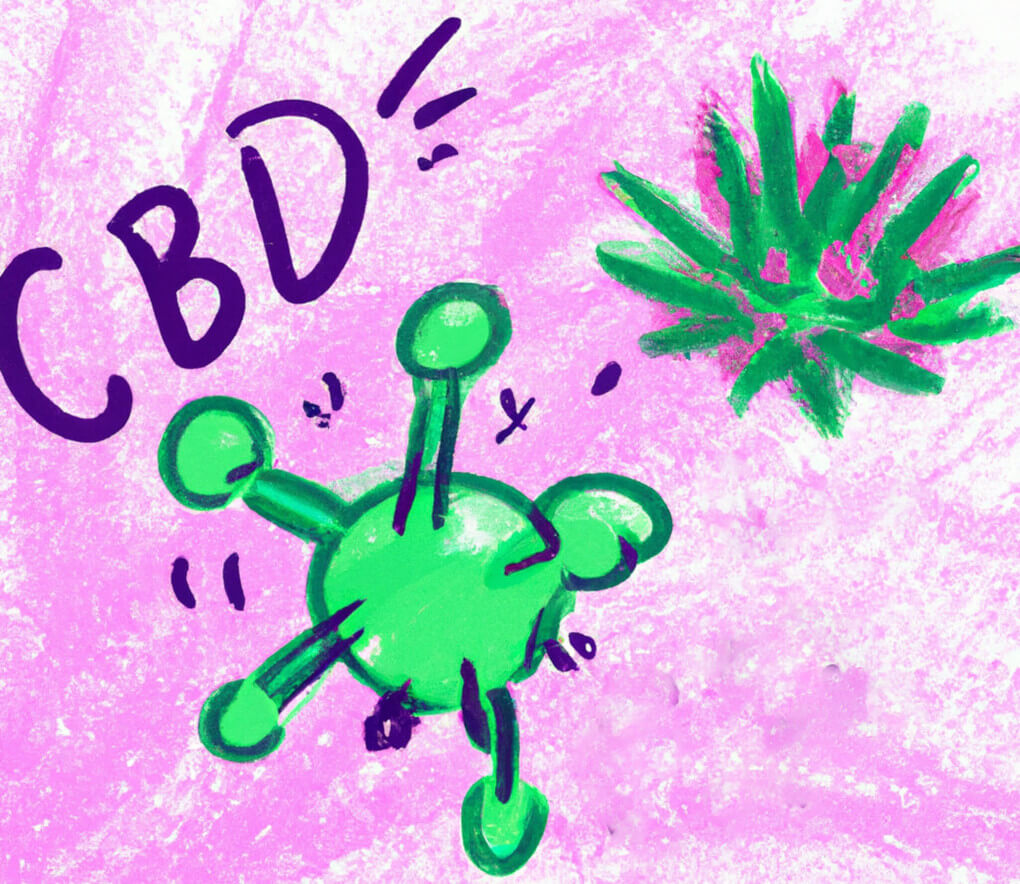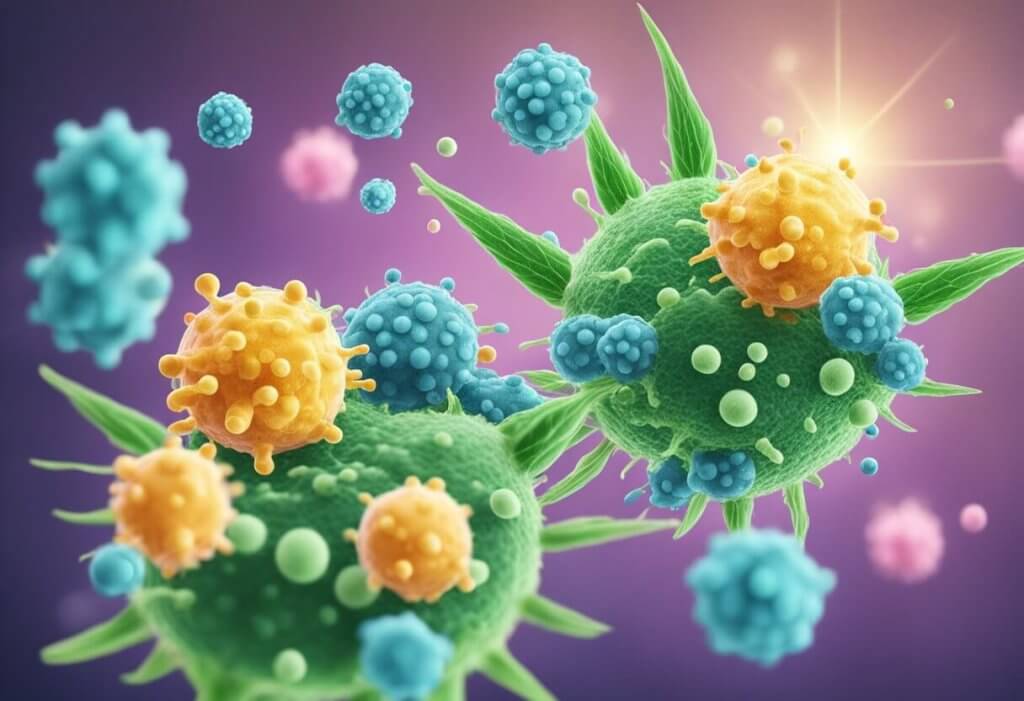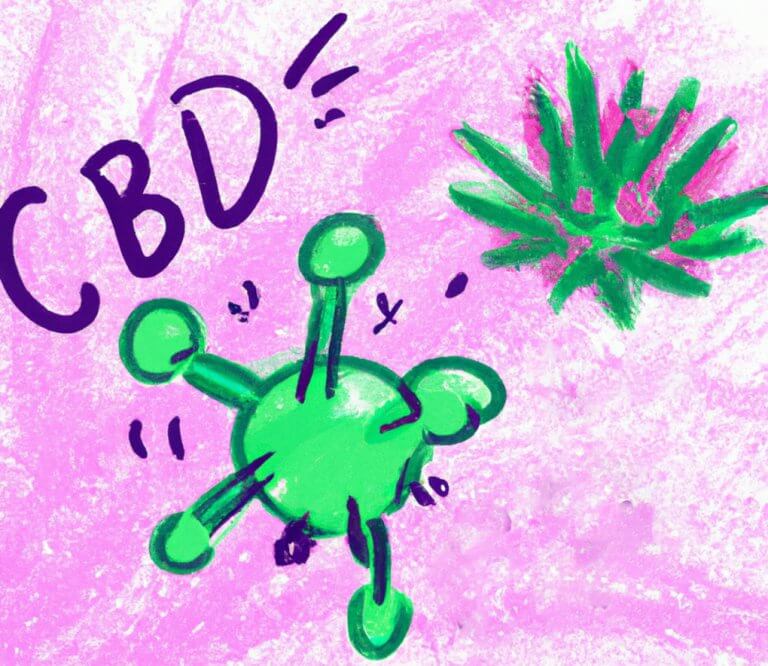Unveiling Its Potential in Fighting Infections
Disclaimer: The anecdotal benefits of CBD mentioned on this website are based on preliminary research and individual user experiences. All information presented here is not meant to substitute for or replace information from health care practitioners. Please click here for our full disclaimer, including side effects, FTC position, etc.
In a world where antibiotic resistance is rising, many are turning to natural alternatives like CBD for its potential antibacterial properties.

As the battle against bacterial infections becomes increasingly challenging with the emergence of antibiotic-resistant superbugs, the search for effective alternatives has never been more crucial.
Enter cannabidiol (CBD), a natural compound derived from the hemp plant that has been making waves in the wellness community. While CBD is most commonly associated with its potential benefits for anxiety, pain, and sleep, recent studies have shed light on its lesser-known antibacterial properties. This revelation piqued the interest of medical professionals and individuals seeking natural solutions to combat bacterial infections.
As we delve into the fascinating world of antibacterial CBD, we’ll explore the science behind its effectiveness and the potential implications for the future of antibacterial treatments.
Key Takeaways
- CBD has been identified as having antimicrobial and antibacterial properties.
- Research is focused on the application of CBD against antibiotic-resistant infections.
- The interaction between CBD and traditional antibiotics could lead to enhanced treatment efficacy.
CBD and its Antibacterial Properties

Cannabidiol, or CBD, has been recognized for its potent antibacterial activity, offering promise against resistant strains like MRSA. Research into CBD from cannabis sativa plants shows its potential as a complementary agent to antibiotics.
Mechanisms of Antibacterial Activity
CBD tackles harmful bacteria from multiple angles. It can disrupt bacterial cell membranes and interfere with the processes bacteria need to thrive. Evidence suggests that CBD targets gram-positive bacteria, including notorious strains like methicillin-resistant Staphylococcus aureus (MRSA). Proteins vital for bacterial survival also appear to be compromised in the presence of cannabidiol, indicating a broad-spectrum capability.
Synergistic Effect of CBD Against Various Bacteria
When discussing the efficacy of CBD, minimum inhibitory concentration (MIC) is key; it’s the least amount needed to prevent bacterial growth. Studies have shown varying MIC values, indicating that CBD can be effective against various bacteria, including gram-positive and gram-negative, but its potency varies by type. Moreover, CBD exhibits a synergistic effect—it can enhance the effectiveness of conventional antibiotics, a crucial benefit in the fight against antimicrobial resistance. However, CBD is not universally effective, with outcomes differing across bacterial species and research studies.
Challenges and Potentials in Clinical Application

The potential of cannabidiol (CBD) in treating antibiotic-resistant bacteria is a hot topic as researchers scramble to find alternatives to traditional antibiotics. Despite increasing concerns about drug-resistant pathogens, CBD’s possible place in clinical settings faces obstacles and promising developments.
Antibiotic Resistance and CBD
Antibiotic resistance is a growing concern for global health, as identified by the World Health Organization (WHO). CBD’s forwardness in this battle hinges on its potential to fight multi-resistant strains. Research suggests CBD can be particularly effective against Gram-positive bacteria, and scientists are investigating its mechanisms, such as efflux pump inhibition and membrane permeability alterations, to overcome antimicrobial resistance.
Clinical Trials and Research
CBD has garnered attention as a possible antibacterial agent in the realm of natural products. The FDA has noted the increase in research but remains tentative on approvals pending further clinical trials. Studies such as those exploring the combination of CBD with polymyxin B against Gram-negative bacteria raise hope for a new class of treatments.
Flesh-eating bacteria (necrotizing fasciitis) and CBD
Necrotizing fasciitis, caused often by virulent strains like MRSA, presents a high-risk clinical scenario due to its rapid progression. CBD’s application in combating this infection is under investigation. The prospect of leveraging CBD against such bacteria could be a breakthrough in handling flesh-eating bacteria cases resistant to conventional treatments.
CBD and Gram-positive bacteria
CBD has exhibited promising activity against Gram-positive bacteria like Staphylococcus aureus, which are often involved in pneumonia and biofilm formation. This is crucial, as biofilms can shield bacteria and the immune system from antibiotics, making infections difficult to treat.
CBD and Gram-negative bacteria
Gram-negative bacteria, notoriously tough due to their protective outer membranes, pose significant challenges in treatment. The research highlighted by NCBI indicates that CBD might enhance the efficacy of existing antibacterials like polymyxin B, offering hope in treating resistant strains and drug resistance issues.
“CBD has a very unique mechanism of action against bacteria that makes it an attractive new antibiotic, especially given the increasing resistance of many important pathogens to currently available drugs.”
Dr. Mark Blaskovich, Senior Research Officer at the Centre for Superbug Solutions at the University of Queensland
Synergistic Effect of CBD and Antibiotics
Research indicates that cannabidiol (CBD) may enhance the efficacy of certain antibiotics against resistant bacteria. In the battle against antimicrobial resistance, scientists are investigating the potential of CBD as an adjunct therapy. With an increase in bacteria that are resistant to conventional antibiotics, it’s crucial to explore innovative approaches.
Time-Kill Assays: Tests showed a synergistic effect when CBD was combined with polymyxin B (PB) against PB-resistant K. pneumoniae isolates. This combination may open doors to new therapies for resistant strains. For more detail on these assays, Potential cannabidiol (CBD) repurposing provides insight.
Serial Dilution Techniques: Researchers can identify the minimum concentrations required to inhibit bacterial growth by serially diluting CBD and standard antibiotics. This method aids in understanding the effectiveness of CBD in tandem with antibiotics. The work summarized in The antimicrobial potential of cannabidiol explores this technique.
Enhancement & Extension: Certain conventional antibiotics are found to improve and extend their antibacterial activity when used with cannabinoids. Strikingly, CBD notably increased the antibacterial effects of erythromycin and rifampicin against E. coli. The study concerning Cannabis sativa’s antimicrobial effect can explore these findings in more depth.
The collaborations of CBD with different antibiotics suggest it could be part of the solution to the growing issue of antibiotic-resistant infections. For a more comprehensive review of the antimicrobial and cytotoxic effects of cannabinoids, the updated review covers a broader range of cannabinoids and their potential uses in therapy.
Promising Study: Research conducted at McMaster University demonstrated that CBD has consistent activity against a wide range of Gram-positive bacteria, including drug-resistant strains. The study’s authors concluded that “CBD represents a promising novel antibacterial whose activity may be leveraged by its propensity to undergopotentiate bacterial ATPase activity.”
https://www.ncbi.nlm.nih.gov/pmc/articles/PMC7815910/
Frequently Asked Questions
This section addresses common inquiries about CBD’s antibacterial potential, clarifying its uses in treating infections and its efficacy when combined with other treatments.
Can CBD oil be used to treat bacterial infections?
Research suggests that CBD oil may have antibacterial properties. Studies have shown CBD is effective against some Gram-positive bacteria, even those resistant to other antibiotics, though more research is needed to determine its clinical applications.
What’s the deal with CBD for skin issues, especially infections?
CBD has been found to possess anti-inflammatory properties, which may help in treating skin issues like infections or acne. Its ability to help regulate oil production and reduce inflammation could make it a beneficial addition to skincare regimens.
Is there any truth to CBD oil having antiviral properties?
The antiviral effects of CBD oil are an area of interest, but conclusive evidence is still lacking. Some preliminary research suggests that CBD could affect viral pathologies, but solid scientific consensus has yet to be reached.
Could the combination of CBD and antibiotics like doxycycline be effective?
There is a growing interest in the synergistic effects of CBD with antibiotics like doxycycline. While some lab studies hint at the possibility of increased effectiveness, it’s vital to approach this combination with caution until more clinical trials are conducted.
Is it true that hemp-based products have antimicrobial qualities?
Hemp-based products, including those containing CBD, are recognized for their antimicrobial properties. The plant itself has natural defenses against microbes, which can carry over into extracts like CBD oil, although results can vary depending on the specific hemp product and its method of extraction.
Success Story: A recent study published in Nature found that CBD, when used in combination with the antibiotic bacitracin, was effective against Staphylococcus aureus, a common cause of skin infections. The researchers noted that “CBD is a quite effective antimicrobial compound.”
https://www.nature.com/articles/s41598-020-60952-0
